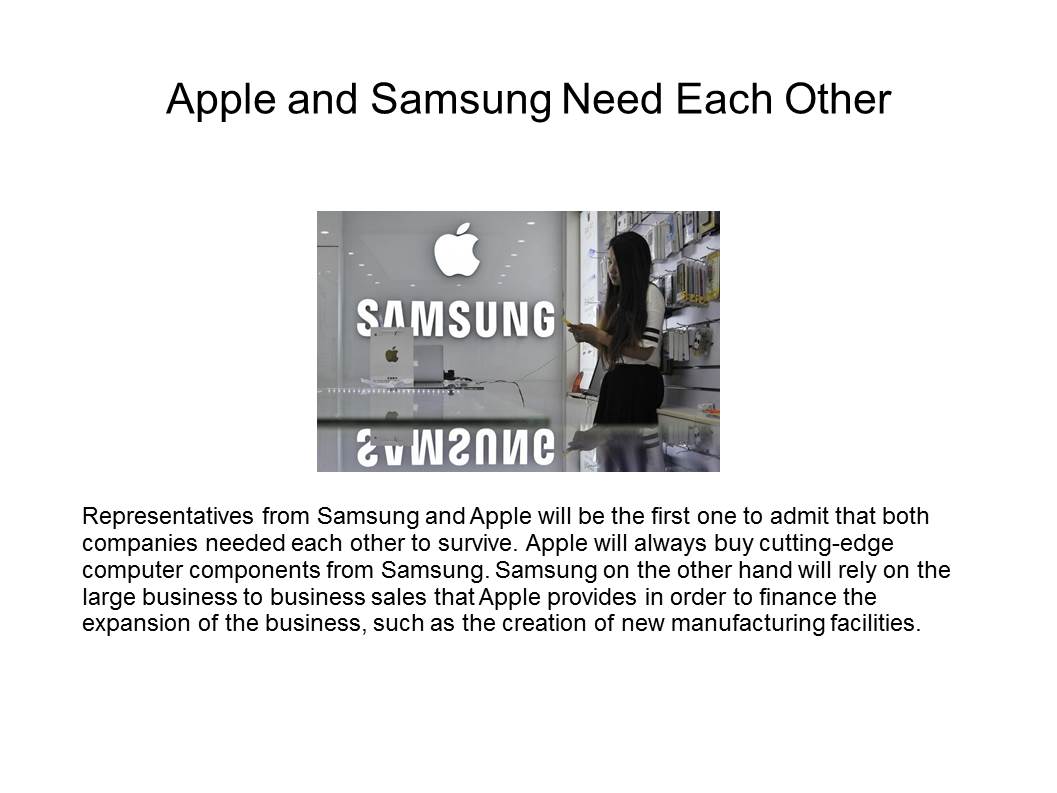Business to Business Marketing
Basic Principle #1: Business markets are markets for products and services available in both local and international sources. These are products and services acquired by corporations, government agencies, and institutions for the purpose of consumption, incorporation, use, or resale. This type of business covers the largest market of all, and the only markets that are not of direct interest are those that are related to personal use or consumption, such as items related to home appliances and consumer banking.
Basic Principle #2: Corporations like Apple and Samsung purchase industrial goods to form or facilitate the production process for products like Apple computers and Samsung flat TV screens. Corporations like Samsung and Apple acquire components from manufacturers to produce goods and services.
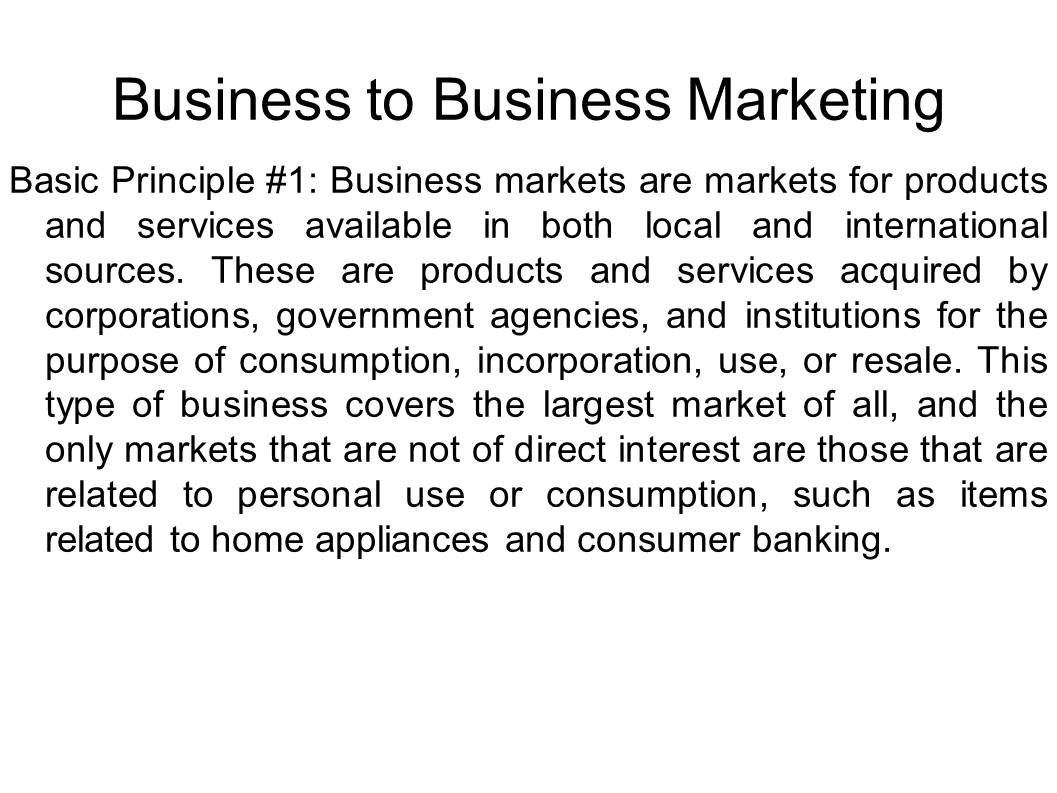
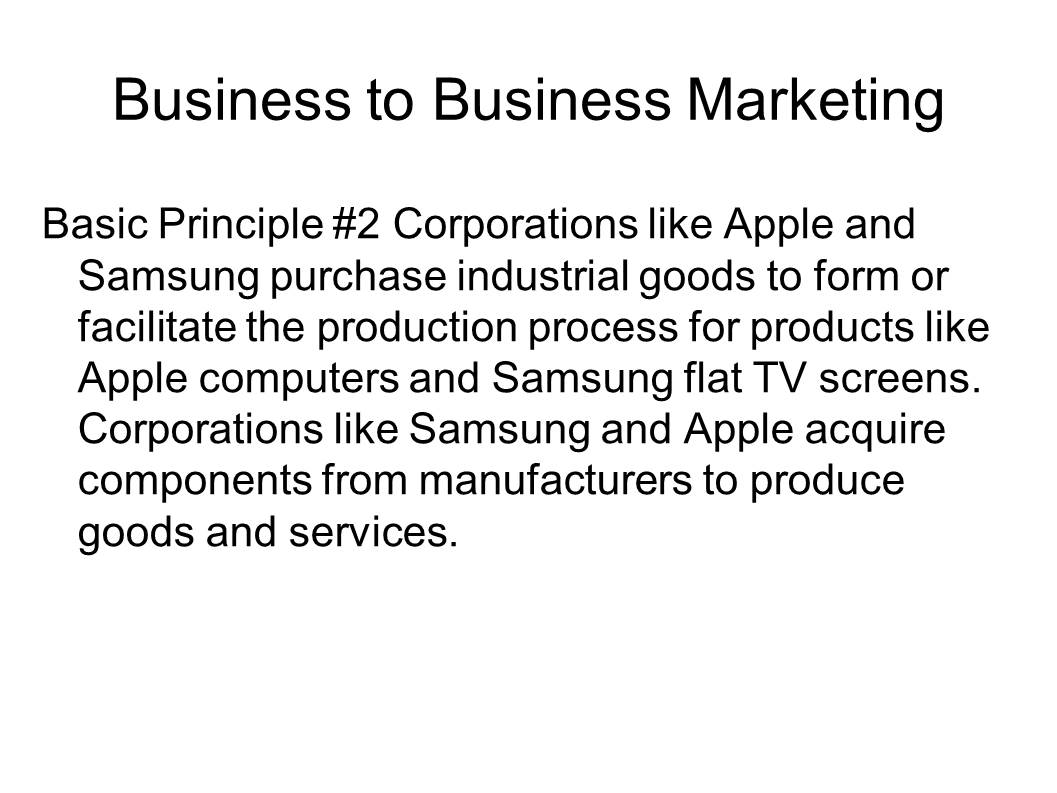
Apple and Samsung’s Symbiotic Relationship
Apple buys components from Samsung
Apple’s iPhone 4 was one of the company’s most successful product. In this graphic, one can see that Apple does not produce any component, and does not assemble the product. Each component was purchased in a business to business framework from other companies. However, Samsung was Apple’s main supplier of computer components.
Apple announced the production of new products that are more sophisticated and promises to address other needs. This means that Apple will need more powerful components. In its desire to reduce its dependence on Samsung, Apple attempts to look for other suppliers. However, the company learns soon enough that Samsung makes the best computer chips in the world.
Samsung announced the opening of a new factory that will start operating in 2017. The purpose of the new factory is to ramp up production rates, and to satisfy the demand for more sophisticated computer chips and computer components. In order to sustain its position as the number one computer component manufacturer in the world, Samsung requires a steady stream of income. Thus, Samsung needs the purchasing capability of Apple to remain consistent on a yearly basis.
Samsung is a major supplier of components to other firms, and therefore its competitive advantage is its ability to scale its production in order to produce cheaper products, such as smartphones and tablets. However, Apple continues to lead the pack in terms of sales of smartphones and tablets, because it focuses its attention on its competitive advantage over other manufacturers. In other words, Apple focuses on the creation of products with elegant design and powerful software that are compatible with the overall design of the product.
With regards to the current business environment wherein Apple buys components from Samsung, the company will be hard-pressed to advertise its phones as having better hardware than its competitors. In the context of brand positioning, Apple will strive to appeal to consumer’s perception. By doing so, Apple negates the superior position of Samsung in terms of hardware. Thus, even if the core components and hardware facet of the phones are similar, the consumer will always find iPhones as more appealing. This is the reason why there are so many consumers all over the world that are still loyal to Apple, even if it is obvious that Samsung produces phones that are more powerful and efficient than rival companies.
Samsung is being sued by Apple for patent infringement. It becomes obvious that although Samsung has an advantage over hardware, it has difficulty when it comes to design and to develop products that have better overall feel. It can be argued that Samsung attempts to copy the aesthetic aspect of Apple’s successful branding and design.
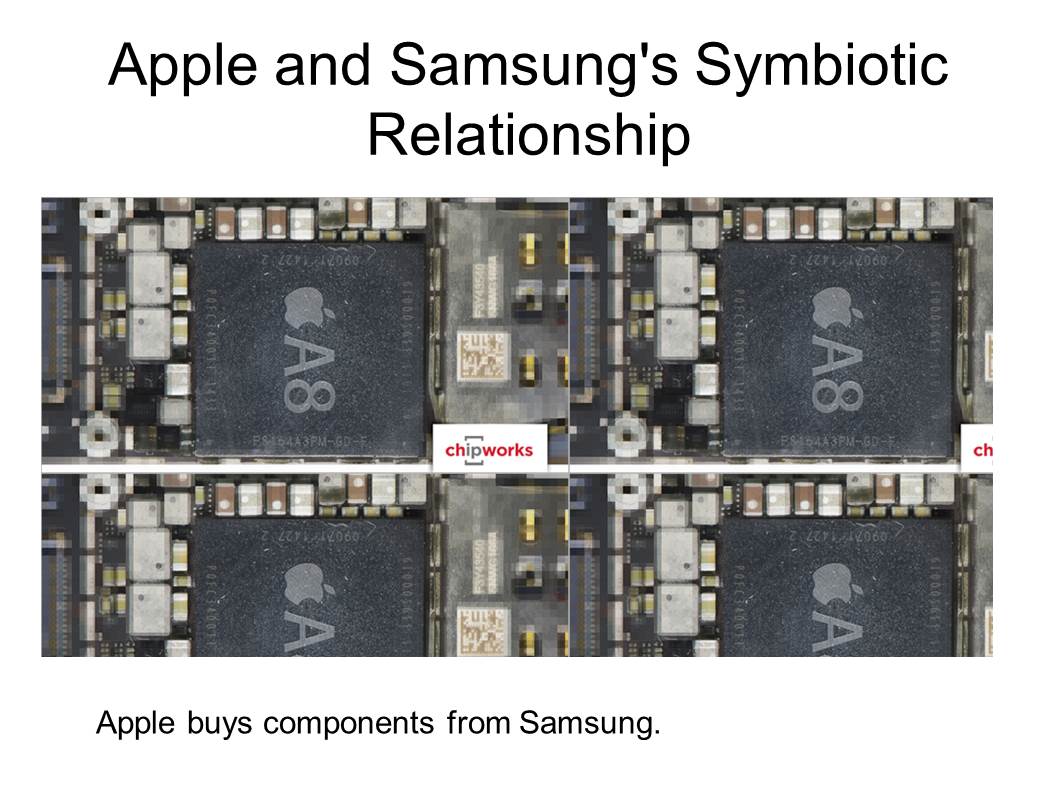
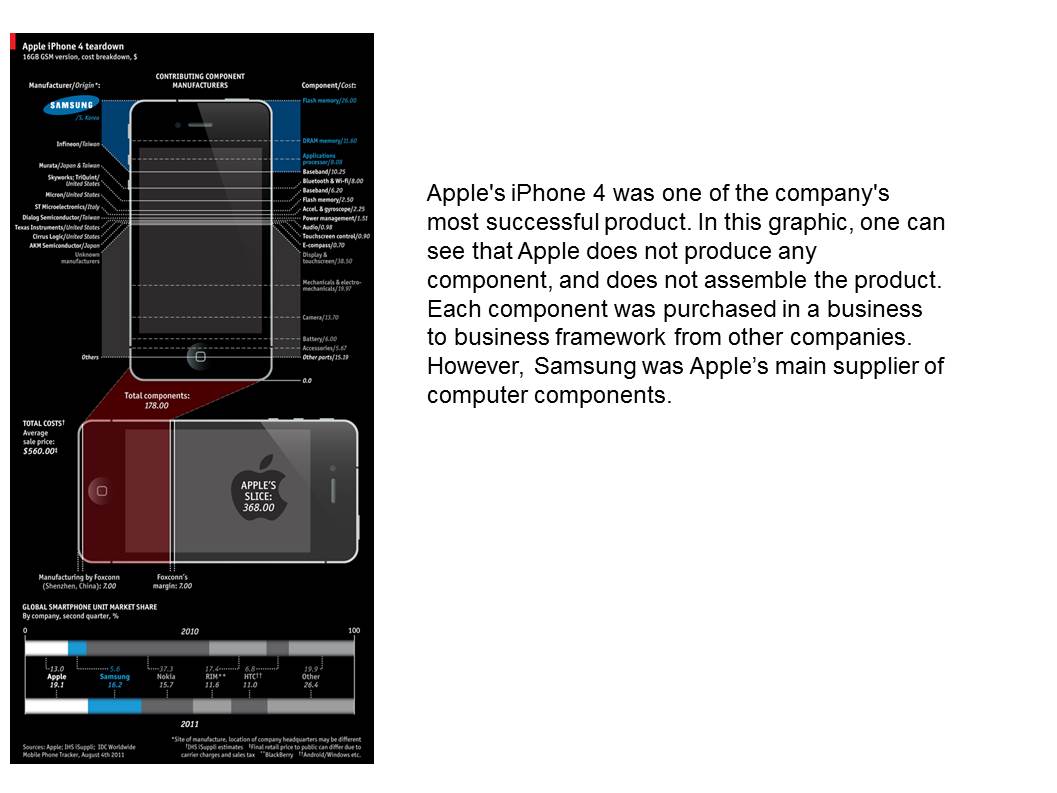
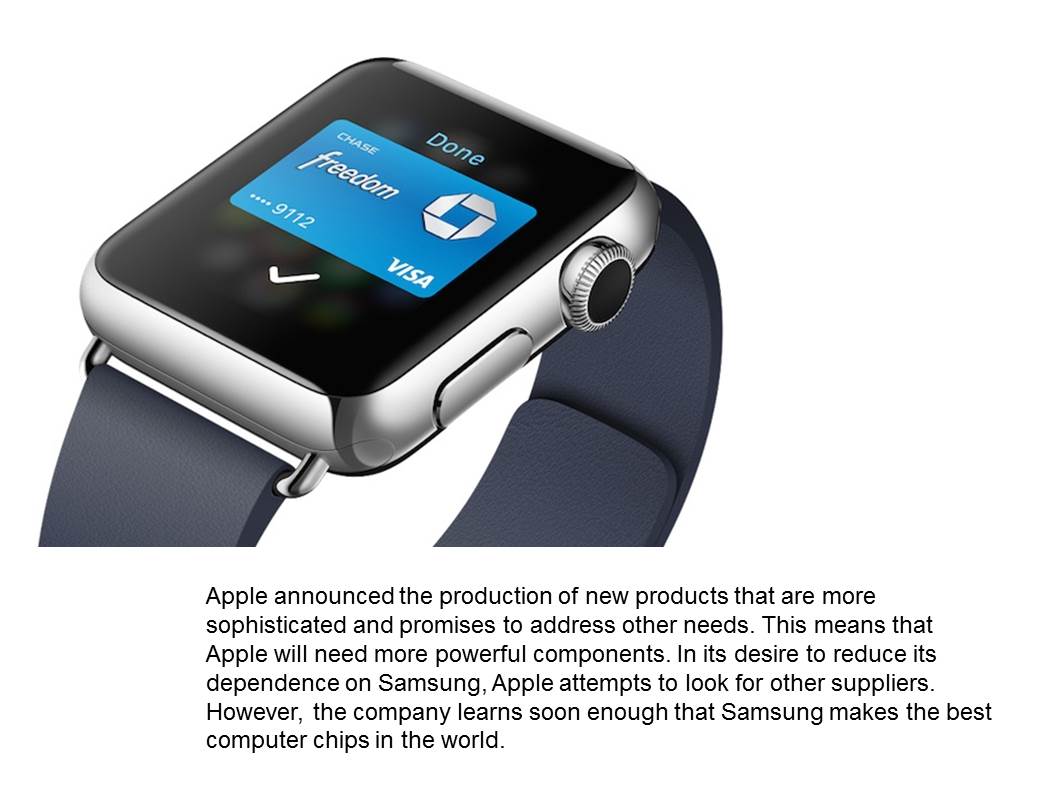
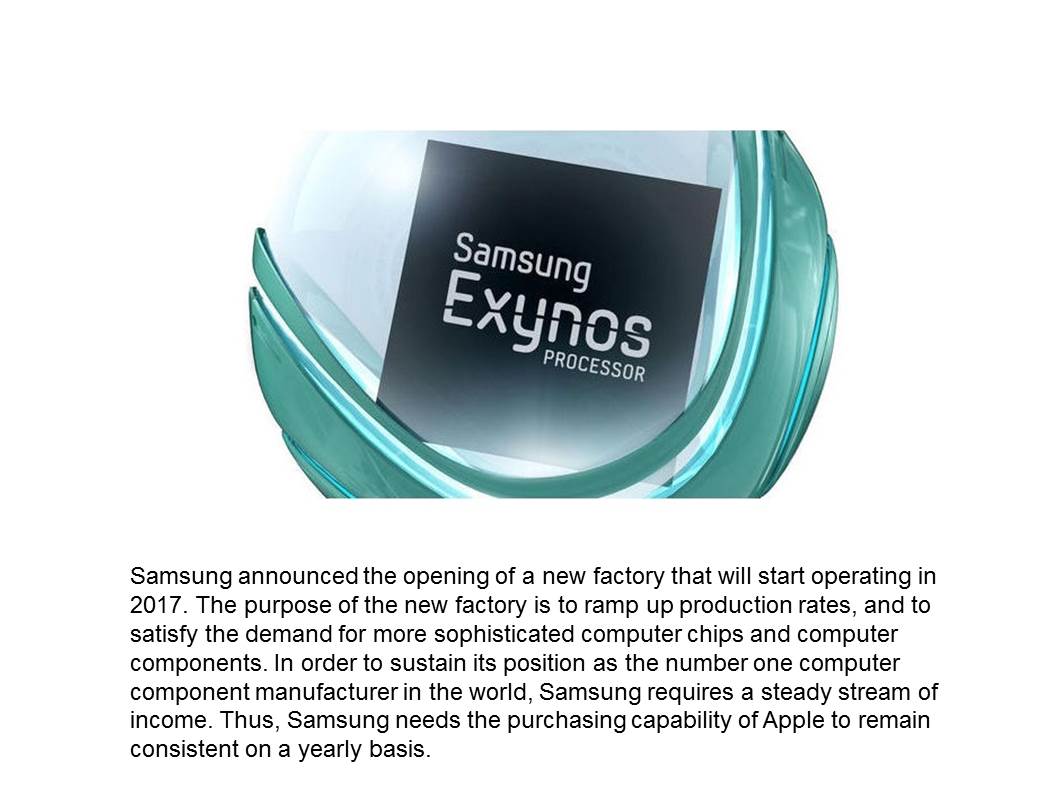
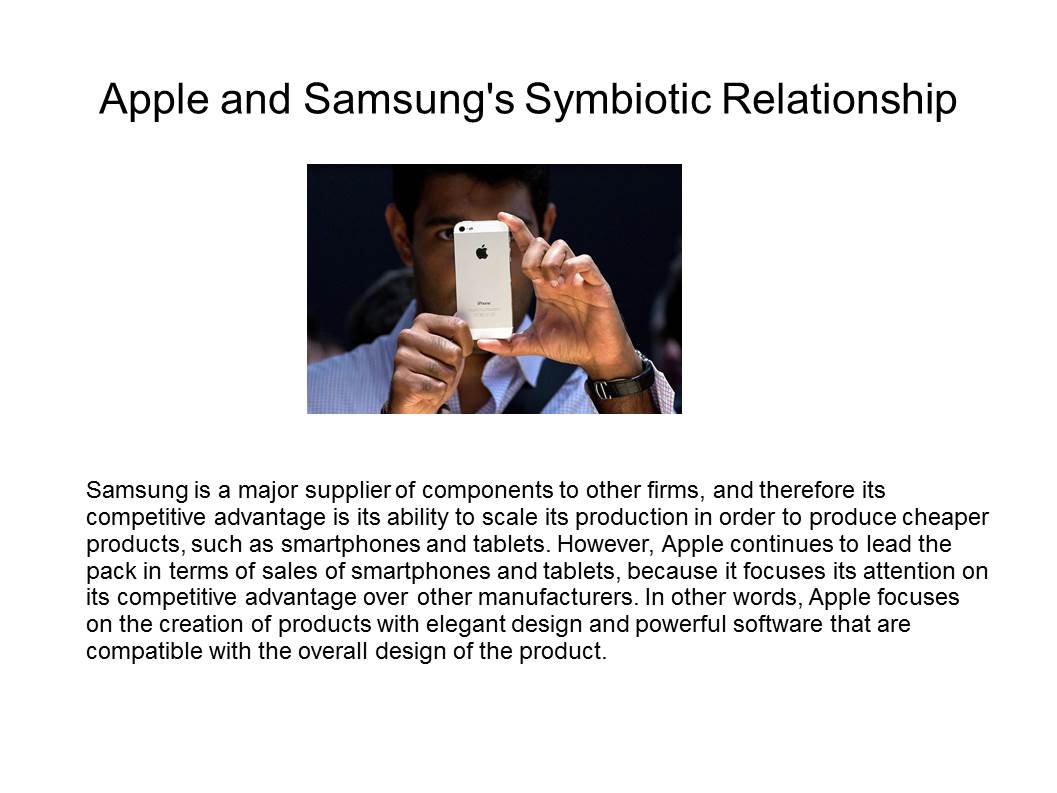
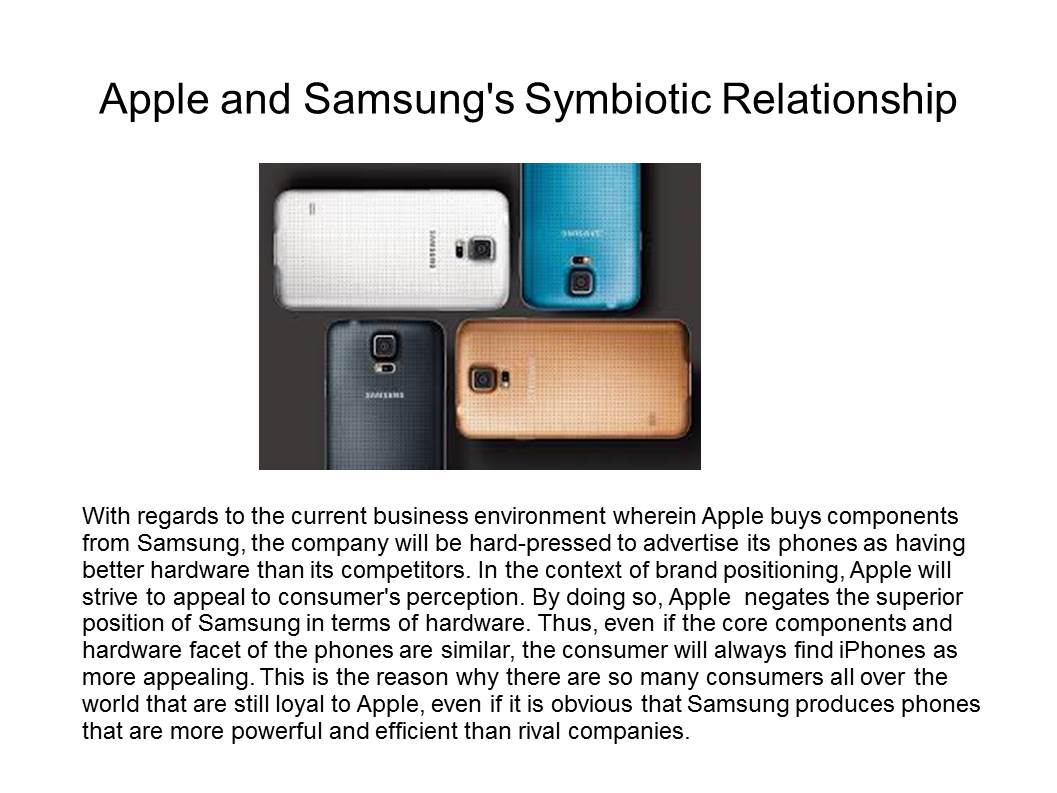
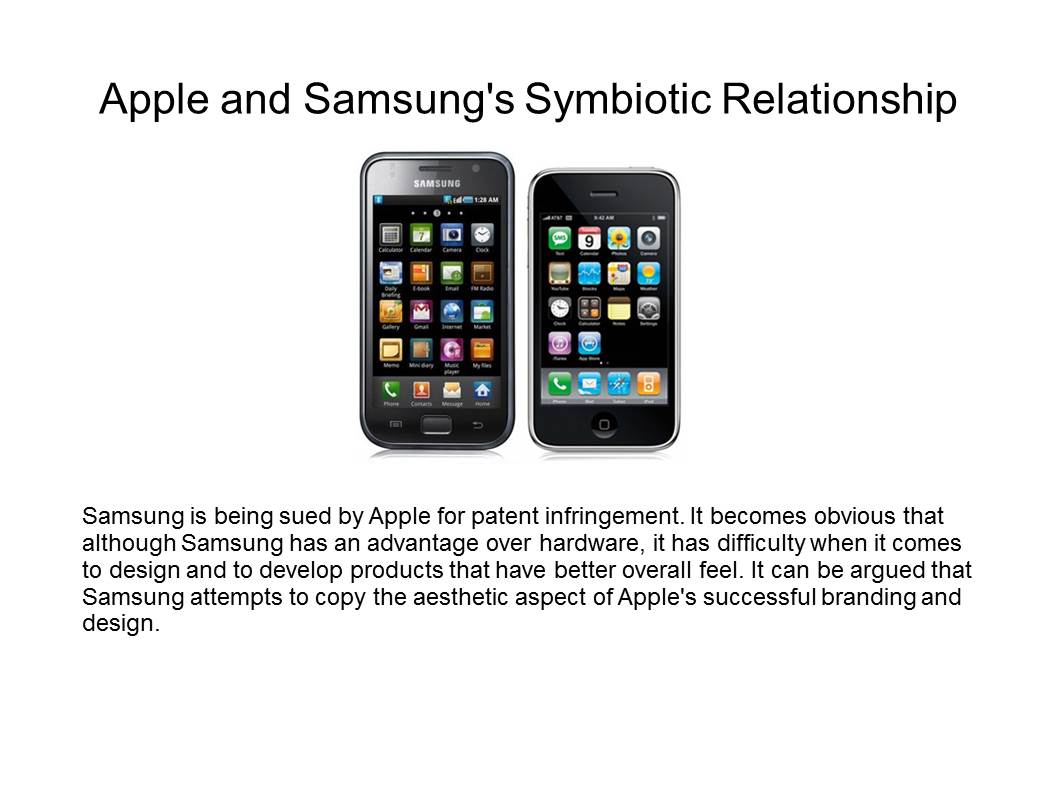
Apple and Samsung Need Each Other
Representatives from Samsung and Apple will be the first one to admit that both companies needed each other to survive. Apple will always buy cutting-edge computer components from Samsung. Samsung on the other hand will rely on the large business to business sales that Apple provides in order to finance the expansion of the business, such as the creation of new manufacturing facilities.
